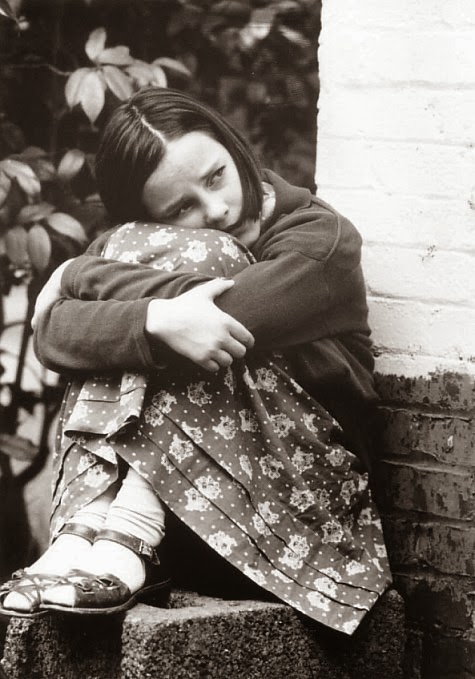Unspoken
Abuse
Annie Kenyon
When we think of the word home we think warmth,
protection and privacy from the huge world we live in. It is a place for
relaxation and a time to spend with the people you love. Sadly, this isn’t the
case for 1 in every 100 children in the United States.
 Children react to physical and sexual abuse in
“unpredicted ways” (Katz). With both physical and emotional abuse most children
accept the abuse. Some children often believe that “they have no
other choice but to endure abuse by their parents, who they depend on for love
and support” (Katz). Bone became a victim early on in her childhood. When Anney
was in the hospital, Glen and the girls waited in the car awaiting the arrival
of the new addition to the family. All Glen wanted was a boy and what Glen
wanted, Glen usually didn’t get. His life consisted of failure and
disappointment and the only thing he had was Anney and the kids. He did not
have the power to pick the sex of the child, but had the power to take
advantage and for once feel in control of his life the night in the parking
lot. While sitting with Bone on his lap he exclaimed multiple times to Bone
that it’s going to be all right and that they were all going to be happy.
Holding Bone on his lap “he grunted, squeezed my thighs between his arm and his
leg. His chin pressed down on my head and his hips pushed me up at the same time.
He was hurting me, hurting me” (Allison 47). At that moment, Bones life would
be forever changed.
Children react to physical and sexual abuse in
“unpredicted ways” (Katz). With both physical and emotional abuse most children
accept the abuse. Some children often believe that “they have no
other choice but to endure abuse by their parents, who they depend on for love
and support” (Katz). Bone became a victim early on in her childhood. When Anney
was in the hospital, Glen and the girls waited in the car awaiting the arrival
of the new addition to the family. All Glen wanted was a boy and what Glen
wanted, Glen usually didn’t get. His life consisted of failure and
disappointment and the only thing he had was Anney and the kids. He did not
have the power to pick the sex of the child, but had the power to take
advantage and for once feel in control of his life the night in the parking
lot. While sitting with Bone on his lap he exclaimed multiple times to Bone
that it’s going to be all right and that they were all going to be happy.
Holding Bone on his lap “he grunted, squeezed my thighs between his arm and his
leg. His chin pressed down on my head and his hips pushed me up at the same time.
He was hurting me, hurting me” (Allison 47). At that moment, Bones life would
be forever changed. According to Carmi
Katz, Bone reacted like most other children do. She told no one because she felt
that she needed her parents (especially her mom) “to survive, and in some
cases, parents love, care for, and support their children when they are not
abusing them” (Katz). Bone thought Glen “really did love us” (Alison 51). She
didn’t want to believe that day even happened and kept on trying to convince herself
that it was a dream. Bones biggest concern was not hurting her mother who had
already been through enough.
According to Carmi
Katz, Bone reacted like most other children do. She told no one because she felt
that she needed her parents (especially her mom) “to survive, and in some
cases, parents love, care for, and support their children when they are not
abusing them” (Katz). Bone thought Glen “really did love us” (Alison 51). She
didn’t want to believe that day even happened and kept on trying to convince herself
that it was a dream. Bones biggest concern was not hurting her mother who had
already been through enough.
Like
most kids Bone decided to “endure the abuse” (Katz). She began to blame it all
on herself, “When Daddy Glen beat me there was always a reason, and Mama would
stand right outside the bathroom door” (Alison 110). Even her mother would
start to believe that she was beaten for a reason, when it really was just a
way for Glen to express his anger and insecurities. Not being able/wanting to
talk about what is happening at home results in “children suffering from
emotional and behavioral problems” (Katz). Bone began to hate her self and when
Glen looked at her with his “cold, angry eyes” she felt like the “most
disgusting person on earth. I didn’t deserve to live another day” (Alison 136).
For Bone and millions of other children around the world, abuse becomes just
another part of their everyday lives. A home stops feeling like a home a more
like a house. A place one comes back to because they have no place else to go.
Link: http://www.firstpost.com/living/why-children-who-are-victims-of-sex-abuse-hardly-speak-up-1306183.html
No comments:
Post a Comment